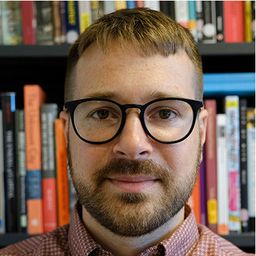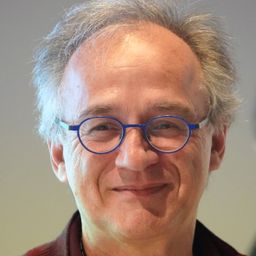
Brian Rosa
I am an urban geographer and photographer living in Barcelona, Spain, where I am a Marie Skłodowska-Curie Research Fellow at the Department of Humanities, Universitat Pompeu Fabra. Before relocating to Barcelona, I was Assistant Professor of Urban Studies (Queens College) and Geography (The Graduate Center) at the City University of New York. I was also affiliated with the Queens College MFA in Social Practice program and was founder and co-Director of the College’s City Lab. From 2013 to 2014, I was Lecturer in Urban and Community Studies at the University of Connecticut, Storrs.
I hold a PhD in Human Geography from the University of Manchester, a MRP in City and Regional Planning from Cornell University, and a BA in Sociology from Clark University.
My academic work focuses on the transformation of deindustrializing urban districts and landscapes of urban infrastructure, political debates about urban heritage and preservation, gentrification, visual methods, and the spatial and cultural politics of urban transformation in Britain, the United States, and Spain.
I am co-editor, with Christoph Lindner, of Deconstructing the High Line (Rutgers UP 2017), and have published my work in peer-reviewed journals and edited volumes in English and Spanish.
My current research in Barcelona explores the conservation of smokestacks as monuments-typically, demolishing remaining industrial buildings and structures and leaving them in landscaped plazas- and seeks to understand how and why this urban design strategy has been replicated since the 1980s. Then, through a participatory methodology involving a photography exhibition at the History Museum of Barcelona, I am investigating what people who live, work, and visit working-class, former industrial districts in the city understand these monuments to symbolize, and to understand attitudes about the city's relation with its industrial heritage and history of urban redevelopment since the transition to democracy and its policy-led deindustrialization.
Sessions in which Brian Rosa participates
Thursday 1 September, 2022
Sessions in which Brian Rosa attends
Sunday 28 August, 2022
Join the conference organisers and TICCIH board members for a welcome cocktail and some festive words of introduction, in the former forge of the École technique de Montréal, founded in 1909, now part of the Université du Québec à Montréal campus.
Monday 29 August, 2022
Industrial heritage and photography have a close relationship. Photography is a source for industrial archaeology. It sheds light on the links between people, their tools, their machines and their workplaces. Once the industrial activity is over, photography is also a tool for documenting and studying the sites. But far beyond that, captured by artists capable of transcending common representations, conferring on industrial remains the ugliness of an era that was thought to be over, photog...
Tuesday 30 August, 2022
Efforts to preserve industrial heritage occurs in a socio-economic and political context. But what is being preserved and for whom? And, relatedly, what is the relationship between industrial heritage sites and the deindustrialized working-class communities that often adjoin them? The keynote will consider the ways that the preservation of Montreal’s Lachine Canal, Canada’s premier industrial heritage site, has enabled gentrification processes that have forc...
Wednesday 31 August, 2022
Rome Reloaded. Or Industrial Heritage Meets the ArtsSince the end of the Industrial Age, the treatment of its heritage has changed from demolition to preservation (Kierdorf/Hassler 2000). In Rome—which is usually not perceived as an industrial city—, over 60 related examples (Torelli Landini 2007) offer a wide field of research regarding visions for its future. Recently, the challenges to reload those artefacts have been accepted also by foreign...
In this lecture, I would like to talk about deindustrialised communities, heritage and memory in the context of right-wing populism. Drawing on studies of memory and heritage, I argue that right-wing populists have cornered the market on talking about the past of deindustrialised communities. They have successfully misrepresented this rich and complex history to fuel rage, resentment, fear and reactionary nostalgia. Indeed, ‘the past’, and in particular the industr...
Thursday 1 September, 2022
From its construction to its restoration, immerse yourself in the now and then of this key Canadian industrial heritage site. A country’s central maritime route, a major inland port, the Canadian Lowell (using hydraulic power), the cradle of industrialization, Smokey Valley (using steam), a manufacturing hotspot, the Lachine Canal is all of this and more. For it is also a national historic site, for which
The proposed session will examine the unfolding relationship between industrial heritage and those left behind in adjoining deindustrialized working-class areas. The four papers seek to understand the socio-economic and political impact of recognizing the industrial past in the present. Two guiding questions will be asked. Can industrial heritage support those ‘left behind’ in deindustrialized areas where nothing, or very little, has filled the economic or cultural vacuum? Has industrial h...
This lecture will argue that the landscapes of industrial heritage that can be found in different parts of the world are directly related to the place-specific trajectories of deindustrialization. In other words: the different ways in which deindustrialization impacts on local communities has a direct bearing on the emergence of forms of industrial heritage. I will differentialte between deindustrialization paths and related industrial heritage regimes in a) Anglo-...
Friday 2 September, 2022
In the refusal of people in communities abandoned by industrial capital to abandon their own places, we can read an implicit critique of the mobility and unaccountability of capital, raised by those who were once inside (however tenuously or uncomfortably) and now find themselves marginalized, “left behind.” The desire to catch up again, whether through attracting new investment or transvaluing abandoned sites as tourist attractions, makes this an essentially conservative critique that is ...
Come and share the good times of the congress and celebrate your scientific and professional discoveries in a former fruit jam factory, Usine C, built in 1913 and transformed at the end of the 1970s into a place for creation and dissemination.Discover Montreal's gastronomy thanks to an exceptional caterer. Learn about Montreal's musical heritage and the history of the industrial district that brought it to life. Then hear and experience Quebec's musical tradition as you are carried ...




